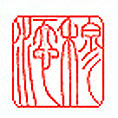You can print this page
without the navigation tool
go back to the guide

Leïla’s mother Aïda was having a siesta in Khartoum, where she worked in the French Embassy, as did her husband. This was in the 1960s. She heard movement in the room, and thought it was her husband. But it was a robber. She called out, and her husband Ismaïl apprehended the intruder, who was later sent for a short jail term. He had not succeeded in stealing anything, but was jailed for the attempt.
Some months later, my father-in-law was in the market. I never met him, since, unhappily, he died before I met his daughter. He liked going to the market. He meets someone who greets him warmly, with the hugging and hand-shaking and multiple exchanges of words typical of Sudanese greetings in Arabic. ‘How are you? You’re well, God-willing. Where have you been? Be at ease and among your people,’ and so on, repeatedly, often with further interjections of such greetings after any conversation has been engaged. It is the robber, who treats Ismaïl as kin or as a good friend, despite the occasion of their original meeting, and invites him to take some tea or coffee.
You can print this page
without the navigation tool
go back to the guide
